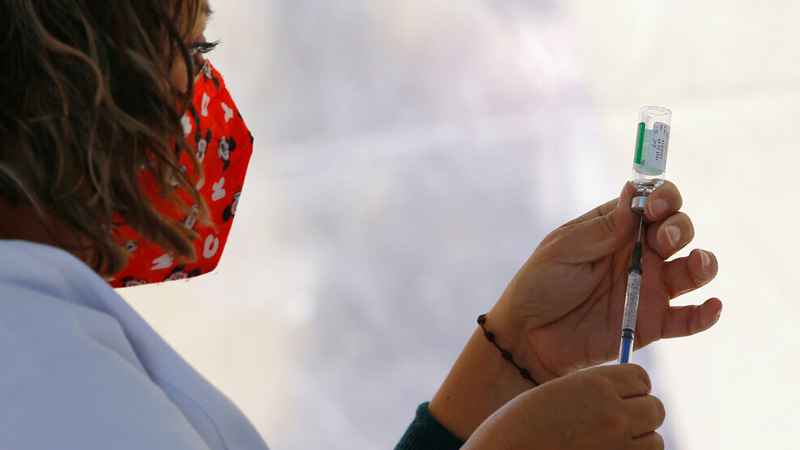MDH updates quarantine guidelines as cases among those vaccinated emerge in U.S.
[anvplayer video=”5007160″ station=”998122″]
The Minnesota Department of Health issued updated quarantine guidelines for the general public on Tuesday. The new recommendations follow CDC protocol.
If a Minnesotan has received both COVID-19 vaccine doses and is exposed to the disease, they do not have to quarantine if it’s been at least 14 days since they received the second dose, and exposure is within 90 days of the final shot, and they have no symptoms.
"I think that the CDC has used science and really good judgment to come up with this decision," said KSTP Medical Expert Dr. Archelle Georgiou.
She explained it takes about 14 days for the vaccine to work.
"Reinfections are extremely rare within 90 days of the original infection," said Georgiou. "That suggests that the antibodies that somebody’s immune system made to the infection are effective for at least 90 days."

According to the CDC, it’s still unclear whether someone with the COVID vaccine can still spread the virus to others.
"Even though people have been vaccinated they could, if they’re exposed to COVID, transmit it to someone else if they’re out of quarantine so it’s a calculated risk on the part of the CDC," said Dr. Georgiou. "We know that people who are symptomatic with COVID are more likely to transmit than people who are asymptomatic and that is why that criteria is in there, that you have to be asymptomatic. It is also part of the criteria that you always wear a mask and social distance so I think the CDC is balancing the pros and cons of the difficulty of quarantining and taking into account these other facts."
The CDC urges those who are vaccinated to still wear a mask and social distance.
In Oregon on Friday, health officials reported four people had contract COVID at least 14 days after getting their second dose of the vaccine. Oregon Health Authority said each person was asymptomatic or had mild symptoms.
A spokesperson for OHA told 5 EYEWITNESS NEWS, "We are working with our local and federal public health partners to investigate these cases and determine their origin. Genome sequencing is underway, and we expect results sometime this week. We can confirm that two of the four cases were associated with a congregate care setting."
We asked Dr. Georgiou about the cases.
"It tells us that no vaccine is 100 percent effective," she said. "What we need to know is how many total people in Oregon have been vaccinated because it’s four people, what’s the denominator? That’s what we have to know here."
The Pfizer vaccine is about 95 percent effective, while the Moderna vaccine is about 94 percent effective.
A CDC spokesperson told 5 EYEWITNESS NEWS, "In the trials, the two authorized vaccines, Pfizer-BioNTech and Moderna, had 94%+ efficacy, but that means that a small number of breakthrough cases of COVID-19 occurred among vaccinated trial participants, so we expect this to happen."
The day before its vaccine was approved in December, Pfizer said data about the efficacy of the vaccine against asymptomatic spread would be gathered in the months ahead.
"We don’t know the effectiveness of the vaccine in preventing asymptomatic COVID," she said. "From a practical standpoint it was easier, for the speed that we needed to complete these trials, it was easier to have people report and get tested when they had symptoms of COVID. It would’ve been very difficult, very expensive and would take a lot longer for them to periodically test all of those 40,000 people whether they were symptomatic or not and just randomly test."
She said it’s important to stay vigilant even as cases, hospitalization and deaths trend downward in Minnesota.
"I hope we continue to see the decline and it gets as low a baseline as possible because what I expect, what the CDC expects will happen in March and April, is we’re going to see another surge," she said. "And that’s because this UK variant is spreading out across the country. It’s already in 40 states, with well over 1,000 cases and we know that it’s doubling every 10 days."
According to Dr. Georgiou, there is limited data about these variants but based on studies, the current vaccines are believed to be just as effective against the UK variant. It may be less effective, however, against the South Africa and Brazil variants because those contain an additional mutation.